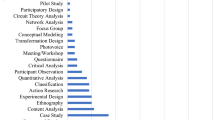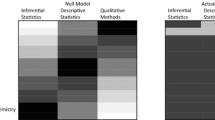Abstract
There is much to celebrate about human progress—increased life expectancy, and global collaboration on pandemics and climate change. Nevertheless, we face major barriers if we are to achieve global sustainable development, and are to avoid cataclysmic wars. Willingness and competence to engage with complex issues are, perhaps, the most difficult barriers to overcome. There are problems with education systems world-wide; engaging with complex issues requires working with diverse sets of multivariate data, and considering different moral and philosophical frameworks. However, in the humanities, too few teachers have appropriate quantitative skills; in STEM, too many teachers stay in their comfort zone and focus on the development of technical skills, at the expense of interpretation and possible action. This chapter maps out the content of the book—a book which offers practical approaches to working in a new field of knowledge—Civic Statistics. Civic Statistics sets out to address important social issues by analysing authentic, authoritative data sets (often using innovative approaches). We aim to support and enhance the work of everyone working in high schools and at tertiary level, by engaging students with important topics, and introducing them to exciting and intuitive data visualisations, rich authentic, data sets, and intellectually stimulating ideas. Part 1 begins by explaining the concept of Civic Statistics, tracing its history, and justifying its place in the curriculum. Part 2 focuses on tools and data sets. Part 3 focuses on design principles in practice, and is the heart of this book. It offers examples of Civic Statistics courses in a range of contexts (including mathematics and business education) applied to educational levels that include postgraduate, undergraduate, high school, and primary teaching. Practical examples are associated with design ideas related to both content and pedagogy, and include reflections on the successes (and less-than-successes) of different teaching approaches. Part 4 takes us beyond the traditional classrooms in which statistics has been taught, and points to some future directions for Civic Statistics. Our ambitions when writing this book have been to foster an empowered citizenry who push for political actions to address the existential threats we all face.
Access this chapter
Tax calculation will be finalised at checkout
Purchases are for personal use only
Similar content being viewed by others
References
Cobb, G. (2015). Mere renovation is too little too late: we need to rethink our undergraduate curriculum from the ground up. The American Statistician, 69(4), 266–282. https://doi.org/10.1080/00031305.2015.1093029
GAISE. (2016). Guidelines for assessment and instruction in statistics education: College report. American Statistical Association. https://www.amstat.org/asa/education/Guidelines-for-Assessment-and-Instruction-in-Statistics-Education-Reports.aspx
Gal, I. (2002). Adults’ statistical literacy: Meanings, components, responsibilities. International Statistical Review, 70(1), 1–25.
Garfield, J., & Ben-Zvi, D. (2008). Develo** students’ statistical reasoning. connecting research and teaching practice. Springer.
ProCivicStat Partners. (2018). Engaging civic statistics: A call for action and recommendations. A product of the ProCivicStat project. http://iase-web.org/islp/pcs
Ridgway, J. (2016). Implications of the data revolution for statistics education. International Statistical Review, 84(3), 528–549.
Vygotsky, L. S. (1978). Mind in society: Development of higher psychological processes. Harvard University Press.
Author information
Authors and Affiliations
Corresponding author
Editor information
Editors and Affiliations
Rights and permissions
Copyright information
© 2022 Springer Nature Switzerland AG
About this chapter
Cite this chapter
Ridgway, J. (2022). Why Engage with Civic Statistics?. In: Ridgway, J. (eds) Statistics for Empowerment and Social Engagement. Springer, Cham. https://doi.org/10.1007/978-3-031-20748-8_1
Download citation
DOI: https://doi.org/10.1007/978-3-031-20748-8_1
Published:
Publisher Name: Springer, Cham
Print ISBN: 978-3-031-20747-1
Online ISBN: 978-3-031-20748-8
eBook Packages: Mathematics and StatisticsMathematics and Statistics (R0)




